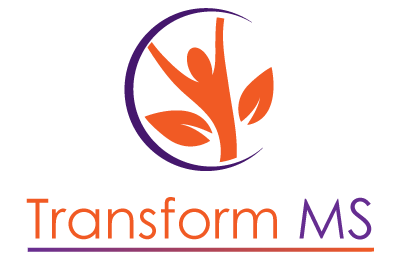From Fear to Curiosity: Navigating the Journey of Healing with MS

What is potentially the most critical piece of healing when you are transforming your life with multiple sclerosis? It is focusing on the process or journey rather than just an outcome. In society as we know it, we are often conditioned to be outcome-driven—to look for results, fixes, and solutions. But when you’re dealing with a complex, evolving condition like MS, getting caught up in the outcome can actually pull you away from what’s most important: the process itself.
Focusing on the Process, Not the Outcome
That hyper-focus on achieving a specific outcome, makes it easy to miss the value of the journey itself. We become fixated on the “end result,” whether that’s feeling completely symptom-free or regaining function that may have been lost. The trouble with this mindset is that it often leads to disappointment, frustration, or even burnout. You might “try everything” -treatments, diets, or lifestyle changes, but if none of them lead to the immediate result you’re hoping for, it can feel like failure. And what I have seen over the years is that feeling of failure can erode your hope, making the path forward seem daunting or impossible.
In a more compassionate approach, shifting your focus from the outcome to the process—living moment to moment with mindfulness and awareness – opens up a different kind of possibility. Instead of measuring success by the elimination of symptoms or the attainment of some external goal, success becomes about engaging with your experience as it unfolds. This is the heart of process-oriented healing.
Sticking with the experience, even when it’s uncomfortable, allows you to remain in tune with your body, your emotions, and the subtle changes that naturally happen over time. It’s a slower, quieter form of progress, but one that is deeply transformative. Instead of looking for quick fixes, you develop a new relationship with your health—one built on patience, understanding, and self-compassion.
The Power of Mindful Awareness in Healing
Mindfulness isn’t just a buzzword—it’s a powerful tool in transforming your life with MS. When you approach your diagnosis with mindful awareness, you are able to observe your body and your emotions without shame, blame or judgment. Instead of resisting the discomfort or fearing what the future might hold, you foster a sense of curiosity. You become a witness to your own process, noticing how your body reacts to different foods, to exercise, how your energy shifts day to day, and how stress and your emotions influence your physical state.
This curiosity is powerful because it helps disarm the fear that often accompanies a diagnosis. When you approach your health from a place of fear—whether it’s fear of getting worse, fear of trying new things, or fear of the unknown—you can literally become paralyzed. Fear leads to avoiding things that matter – like the Four Pillars for MS Success we have talked about in a previous blog, or frantic attempts to find the “right” answer, both of which can stand in the way of true healing.
When you shift from fear to curiosity, everything changes. Curiosity allows you to ask, “What’s happening in my body right now?” or “How can I best support myself today?” without the pressure of needing things to be different. You create space for exploration rather than making unreasonable demands of yourself. The shift from fear to curiosity not only reduces stress but also helps you stay present, and the present moment is where real healing happens.
The Dance Between Process and Outcome
This doesn’t mean you stop wanting improvement or give up on the idea of outcomes entirely. Of course, you want to be better. But by focusing on the process rather than zeroing in on a single result, you allow yourself the flexibility to adapt and grow. You recognize that healing isn’t linear and that progress may look different than what you originally envisioned – for most of us living with MS it can be 2 steps forward and one step back, or to the side! You may still have symptoms, or there may be flare-ups along the way. However, by staying present with the process, you can make informed decisions about your care, rather than jumping from one solution to the next in a crazy quest for a “cure.”
Healing becomes a dance between process and outcome. You may have goals in mind—like more energy, fewer relapses, or greater mobility—but those goals become part of a larger journey rather than the sole focus. The process itself, the day-to-day awareness, is where you cultivate resilience, patience, and the ability to navigate the ups and downs of your health.
Curiosity Over Fear
When faced with a diagnosis like MS, fear is a natural response. The uncertainty of the future, the unpredictability of symptoms, and the changes in your body can trigger deep anxiety. It’s easy to feel like the ground has shifted beneath your feet. But rather than letting fear guide your decisions, choose to foster curiosity.
Curiosity opens the door to possibility. It invites you to ask, “What’s next?” in a positive sense rather than assuming the worst. It encourages you to experiment with ideas that may be new to you like lifestyle changes, new eating habits or selfcare practices, without the weight of needing them to be the final answer. This way, you give yourself permission to explore your health in a way that feels empowering rather than overwhelming.
When you embrace curiosity, your diagnosis truly becomes a gateway to transformation rather than a life sentence to be feared. It’s not about bypassing the tough moments or ignoring the reality of living with a chronic condition—it’s about holding those realities with openness and an understanding that change is always possible, even if it looks different than what you expected.
Finding Balance in the Journey
Living beyond a diagnosis like MS is not about achieving perfection or reaching an endpoint where everything is “fixed.” Instead, it’s about finding balance between acceptance and action. You accept where you are in the moment, without judgment or frustration, but you also take steps to support your health and well-being. The process itself becomes a path of self-discovery—of learning what works for your body, what nourishes your mind, and what helps you stay resilient in the face of challenges.
In the end, the journey is the destination. When you stop focusing solely on an outcome and fully embrace the process, healing becomes not just about managing a diagnosis, but about cultivating a life that is rich, meaningful, and filled with possibilities…despite the diagnosis.
So, as you navigate your own health journey, I encourage you to ask yourself: What would it look like to be curious instead of fearful? How can you engage the process, day by day, with awareness and compassion? And most importantly, how can you celebrate the small moments of progress, knowing that they are all part of a larger transformation?
Embracing the process is where real healing begins. And when you do that, you’re not just living with a diagnosis—you’re living beyond it.
If you are curious about how we might work together, I encourage you to schedule a free Discovery call.

